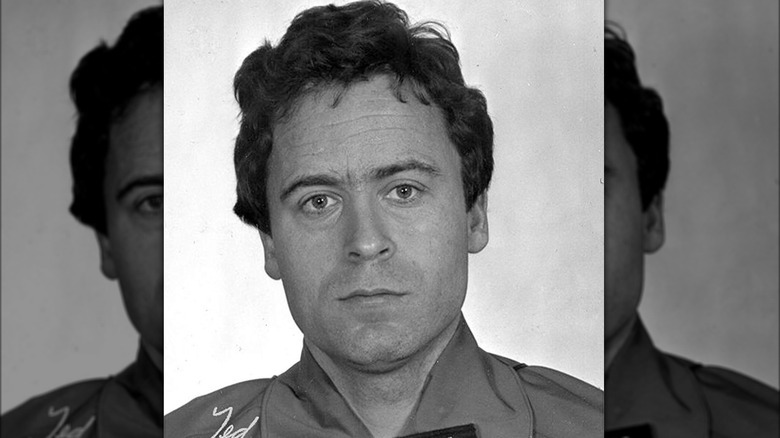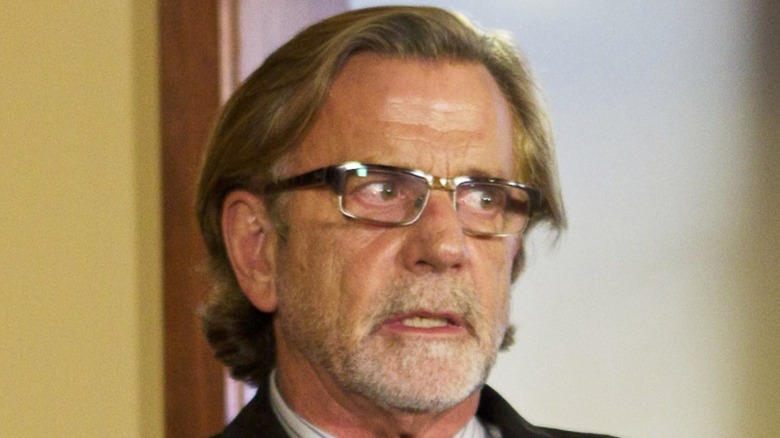What Happened To Lawyer John Henry Brown From The Ted Bundy Case?
We may receive a commission on purchases made from links.
In a fair and just legal system, everyone is entitled to a defense. Every accused criminal, from petty thieves to murderers, is guaranteed the right to a speedy and public trial as well as having legal counsel representing them before the court (per Find Law). While it might be difficult for someone to imagine someone like serial killer Ted Bundy having a legitimate defense, it was his constitutionally protected right to have an attorney navigate the laws and court proceedings, allowing him to be represented by someone who is an officer of the court.
Throughout the multiple trials and charges Bundy faced in the 1970s, he had more than one attorney represent him. The most notable legal counsel Bundy had was attorney John Henry Brown, who first met Bundy when he was arrested in 1975. Though he was not Bundy's lead counsel in any of his trials, his services were utilized by Bundy from that point forward.
During an interview with Fox News, Brown stated, "Ted was the only person in my 40 years of being a lawyer that I would say that he was absolutely born evil." He elaborated, noting that even though he knew Bundy for more than a decade, that he didn't really know his client well (via The New York Post). Brown said Bundy's manipulative and sociopathic tendencies led him to believe that Bundy was always putting on a show, keeping anyone from ever getting to know the real Bundy.
Brown made quite a career as a defense attorney, providing legal counsel for some other notorious names after having Bundy as a client.
Brown defended the man responsible for the Kandahar Massacre
Brown defended Robert Bales in 2012 and 2013 after Bales was arrested for carrying out what became to be known as the Kandahar Massacre (via GQ). On March 10, 2012, Bales was relieved of guard duty at a military outpost in Afghanistan, near the villages of Naja Bien and Alikozai. Bales reported some flashing lights in the area and was concerned that it was members of the Taliban communicating with each other. After his concerns were rebuffed, Bales became intoxicated and took some sleep aides. Still unable to sleep and reportedly bothered by financial and marriage troubles, he left his sleeping quarters. He walked to both Naja Bien and Alikoxai, opening fire on dozens of Afghani civilians. All told, Bales killed 16 people, including nine children.
Hiring Brown for an attorney saved Bales from the death penalty. Brown was able to work out a deal with prosecutors so that Bales could take a plea and avoid the lethal injection chamber. During his June 2013 trial, Bales pleaded guilty to 16 counts of murder. He was given life without the possibility of parole by a military jury in August of that year (via USA Today).
Brown had already developed quite the reputation as the attorney to hire if you were trying to avoid the death penalty for high-profile crimes. Years before he was the civilian counsel for Bales, Brown represented a defendant that was facing a possible death sentence for mass murder in Seattle.
Brown was able to spare the life of Benjamin Ng in 1983
In 1983, Brown was hired to defend Benjamin Ng for his role in the Wah Mee Massacre, in which he bound, robbed, and killed 13 people at a gambling facility that was located in a hotel in Seattle's Chinatown (per The New York Times). Ng faced the death penalty for his participation. But Brown was able to persuade enough of the jury that Ng's life should be spared because it couldn't be proven that he pulled the trigger in any of the murders. Brown was also able to sow enough doubt in the jury regarding whether or not Ng had any prior knowledge that murder was among the motive for his accomplices. The icing on the cake was Brown having Ng's mother testify that her son had suffered a great injury to his brain as a child. She testified that a woman in Hong Kong had beaten Ng in the head with a log repeatedly when Ng was only 5 years old.
The jury rendered a unanimous guilty verdict. In the penalty phase, they were unable to come to a unanimous agreement about whether or not Ng should face the execution chamber. The deadlock resulted in Ng getting life in prison without the possibility of parole.
Brown chronicled his career defending some of the most notorious criminals in his 2016 book "The Devil's Defender: My Odyssey Through American Criminal Justice from Ted Bundy to the Kandahar Massacre," published in 2016.


